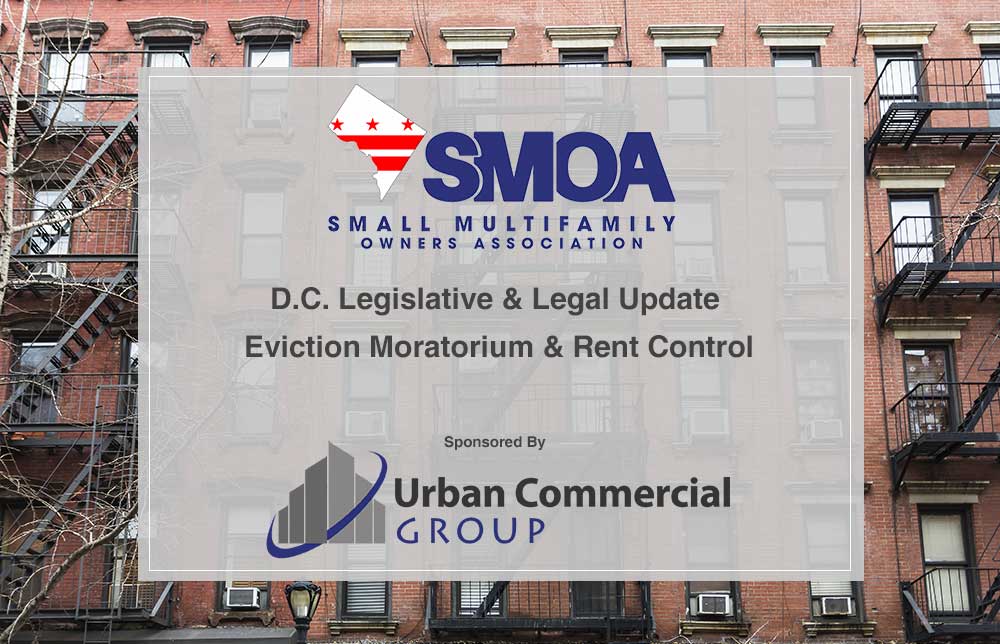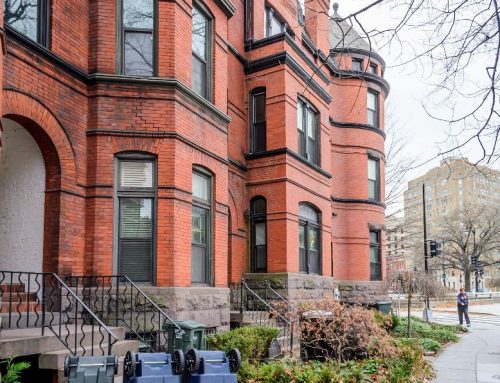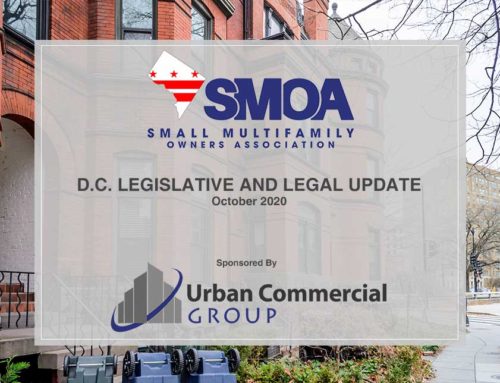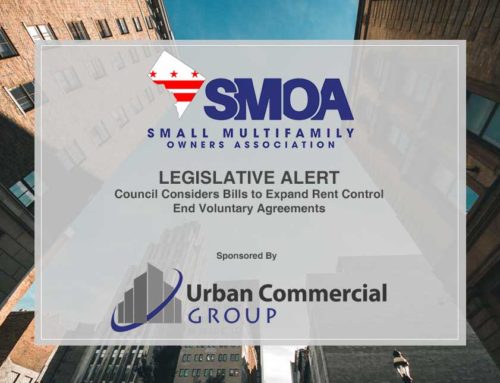This is an update on several recent legal and legislative matters that seriously impact small multifamily owners. There are major developments concerning the moratorium on court filings for evictions, emergency rental assistance for tenants, and efforts to expand rent control that warrant the immediate attention of small rental property owners.
EVICTION MORATORIUM
The DC government has extended the COVID-19 Public Health Emergency until October 9, 2020. This includes the moratorium on court filings for evictions for any reason. The law could possibly block landlords from having access to the courts until January 2021. It also mandates that landlords allow tenants to negotiate repayment plans for late rent over a period of 12 months.
The emergency law is harming rental property owners and risks the safety of tenants. The law is vague, arguably unconstitutional, and terribly overly burdensome for small multifamily owners. SMOA is lobbying the Council and Mayor for two solutions. The first is to allow access to courts for emergency and safety matters. Secondly, is to devise an Emergency Eviction Diversion Program that will allow landlords and tenants to receive emergency rental assistance, as soon as possible, without having to initiate eviction proceedings
EMERGENCY RENTAL ASSISTANCE
The DC Fiscal Year 2021 Budget contains 14 million dollars for emergency rental assistance. The Bookings Institution estimates that the District would need to spend five million dollars per month to avoid mass evictions. SOMA is lobbying Congress and the District government to provide additional funding for emergency rental assistance to assist landlords and tenants.
RADICAL DC RENT CONTROL
The 2021 D.C. Budget Support Act includes a 10-year reauthorization of the District’s current rent control law through 2030. The current law puts extreme limits on rent increases on any building built before 1976.
In response to intense lobbying by well-financed tenants rights groups Councilmembers have committed to considering a Radical Rent Control Agenda. The Radical Rent Control Agenda proposes to expand rent control to include all DC apartment buildings, end voluntary agreements, lower annual permitted rent increases, eliminate vacancy increases, and more. See https://
REFORMING RENT CONTROL
Rent control is the District’s largest affordable housing program. Landlords and developers participating in other affordable housing programs are provided numerous incentives including bonus density, joint venture opportunities, favorable financing, and tax abatements
.
Owners of rent-controlled properties are forced to provide affordable housing by the government without any government compensation. The government must have skin in the game. Landlords should not be forced to bear the full financial burden for rent-controlled affordable housing. Rent-controlled housing providers should receive tax breaks from the District government.
SMOA is advocating for additional rental housing law reforms including, reforming just cause lease termination, elimination of TOPA, reforming the hardship petition process, increasing vacancy and annual allowances, and exempting smaller multifamily properties from rent control.
UPCOMING EVENTS
SMOA General Counsel Richard Bianco will host the Webinar: The D.C. Landlord’s Guide to The COVID Emergency Law, on Friday, August 14, 2020, at 1 pm. Mr. Bianco will provide a comprehensive overview of the COVID Emergency law banning evictions and mandating re-payment plans. Please register at MultifamilyOwners.org
The Multifamily Owners Podcast will launch with the release of the first three episodes the week of August 17, 2020. The D.C. Rent Control War is the subject of the first series. The first segment will examine the Radical Rent Control Agenda, the second segment will focus on Reforming Rent Control. At-Large Councilmember Anita Bonds, Chairperson, of the D.C. Council Committee on Housing and Neighborhood Revitalization is the invited guest for the third segment.







Leave A Comment